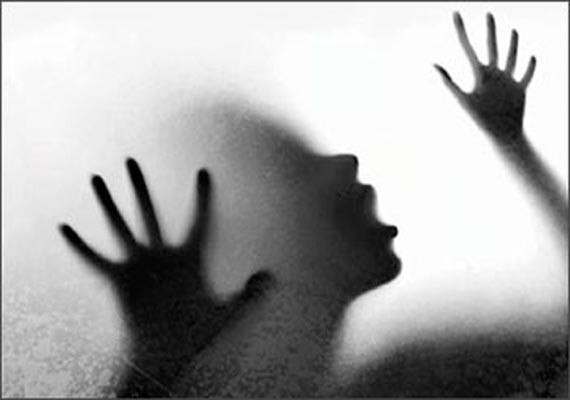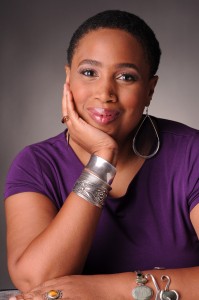
By Jazelle Hunt
NNPA Washington Correspondent
FOURTH IN A SERIES
WASHINGTON (NNPA) – An online survey of sexual assault survivors conduced as part of this series vividly captures the fear and reluctance Black women rape survivors exhibit about sharing their ordeal with others:
From a young woman, drugged and raped by a man she met at a party at age 21:
“I told someone, but I never gave specifics because I felt like they would think it was my fault.”

From a middle-aged woman, repeatedly raped by a classmate’s father at age 6:
“When it first happened, we told our teacher and the [school] nurse. We were told that we were making it up. He told me that if I told anyone, he’d kill my whole family. I was scared for weeks after telling my family.”
From a young woman, raped by her then-boyfriend’s older brother at age 15:
“I never told anyone, not even my boyfriend, until I started talking to a therapist on campus during my sophomore year of college…to this day he doesn’t know.”
From a mature woman, raped at ages 12 and 13 and fondled by a pastor at age 15:
“I never said a word. Because in the end, I blamed myself. How do you know to blame yourself at 12 years old?”
Data from the Department of Justice shows that Black women are less likely than other women to report rape and assaults to police or tell anyone what happened.
Why?
About 80 percent of rapes happen between people of the same race. For Black women survivors whose assailants are also Black, cultural codes can make it difficult to speak out.
Black men vs. Black women
“We in Black communities don’t talk about [sexual assault] because of this pressure to protect the race,” says Aishah Shahidah Simmons, a survivor, educator, activist, and director of “NO! The Rape Documentary,” an international award-winning film that explores sexual violence within in the Black community.
The Philadelphia native explained, “[Black women] are valuable when we’re concerned about protecting our men and our children and our communities, but when it comes to talking about the violence that we’ve experienced at the hands of the men in our communities, then we’re traitors.”
Many have absorbed this message, including survivors. For example, Tiffany Perry, a native of Jersey City, N.J., was surprised to hear her mother’s opinion on the Bill Cosby sexual assault allegations.
“My mom is in support of Bill Cosby, she thinks he’s being sabotaged. She’s leaning more on the side of politics…. And I told her, ‘I can’t believe you, a person who has experienced a rape, would be in support of him,’” Perry said.
“You hear all of these women, particularly Black women – ‘Oh, they should’ve said something a long time ago. They just this, and gold-digger that.’ But if these women had said something, who’s to say these women wouldn’t have gotten railroaded then like they are getting railroaded now?”
On top of the expectation to be supportive of Black men, beliefs about what constitutes ideal Black womanhood, including inexhaustible emotional strength and perfect sexual respectability, can add to the trauma for Black women.
After Sharita Lee was raped at age 20 by a childhood friend, she didn’t know what to do. He had attacked her after hours of reminiscing and catching up, and immediately after a sudden phone call that brought news of her grandfather’s death. He was so abrupt that he had interrupted his own condolences when he pinned her to the couch.
“A reason in why I never told was because – in his particular case – as he began to rape me, I felt pleasure. And I knew I was not supposed to be feeling pleasure because I was being raped,” she says nervously. “In the moment, I felt confused, I felt stupid, because – you know? It’s almost like, do I just say ‘forget it’ that he’s raping me, to enjoy it, or not? So for me, I couldn’t even admit it. This is probably the first time I’m admitting it out loud, ever.”
Distrust of mainstream systems
There are other reasons Black women are less likely to vocalize their pain, including a deep distrust law of both the criminal justice system and the medical community.
Much has been written, for example, of J. Marion Simms, “The Father of Gynecology” who developed his technique by experimenting on enslaved women, without anesthesia, arguing that they could bear levels of pain that White women could not.
Perhaps the most notable incident that gave African Americans pause was the famous Tuskegee syphilis study from 1932-1947 in which treatment for 399 Black men was intentionally withheld even after it was discovered that penicillin was effective in treating the disease.
And there are other reasons for widespread distrust.
The Institute of Medicine report, “Unequal Treatment: Confronting Racial and Ethnic Disparities in Healthcare,” concluded that “(al)though myriad sources contribute to these disparities, some evidence suggests that bias, prejudice, and stereotyping on the part of healthcare providers may contribute to differences in care.”
Furthermore, the National Alliance on Mental Illness (NAMI), a national advocacy and education organization, notes that Black people are less likely to be accurately diagnosed and receive thorough treatment than their White counterparts; are less likely to receive culturally aware care; and are more likely to harbor stigmas about mental illness and treatment.
When Black women develop mental and emotional trouble after an assault, their strength is called into question, as if the pain is a sign of weakness.
“[The term ‘strong Black woman’] denies us of our humanity,” Simmons explained. “This is something – I’ve observed – that plays a role in Black women being able to be raped without recourse. Because it’s like, ‘We can take it, we’re strong, we’re not vulnerable or fragile.’”
As for law enforcement, Blacks and Latinos are incarcerated at disproportionately higher rates in part because police target them for minor crimes, according a report titled, “Black Lives Matter: Eliminating Racial Inequity in the Criminal Justice System” by the Sentencing Project, a Washington-based organization that works for a fair and effective U.S. criminal justice system by promoting reforms in sentencing policy, addressing unjust racial disparities and practices, and advocating for alternatives to incarceration.
In addition, a recent ACLU report found, “Once arrested, people of color are also likely to be charged more harshly than whites; once charged, they are more likely to be convicted; and once convicted, they are more likely to face stiff sentences – all after accounting for relevant legal differences such as crime severity and criminal history.”
For Tiffany Perry, it was more personal than a philosophical distrust of the criminal justice system. At 21 years old, she was the victim of an attempted rape by a police officer. The married policeman was also her co-worker, and her usual ride home after work. One evening, he cornered her in a secluded makeshift office and pinned on a couch where officers slept between shifts.
“I’m saying, ‘Stop! Stop, get off of me what are you doing? I’m going to scream!’ And he says, ‘Go ahead, who’s going to save you, you’re in a police station.’ When he said that to me I just froze. I was like, ‘Wow, I am. Nobody’s going to do anything,’” she remembered.
After groping her for a few more minutes, her assailant suddenly changed his mind, releasing her.
“The thing is – when we left there, I got in the car with him. And I tried to explain this…I was so afraid of him that I got in the car with him,” Perry says. “To people, that doesn’t make any sense…but when he said, ‘Nobody’s going to hear you, and nobody’s going to believe you,’ I convinced myself that he was right. I felt like I should’ve known better.”
She never reported the incident. Two years later, she was able to tell her mother, who had been raped and had become pregnant with her at age 15.
“I didn’t want to be scrutinized, I didn’t want to be under the limelight. I didn’t want to relive it. I didn’t want to talk about it,” Perry said. “Even now I have feelings of guilt…what if, because I didn’t say nothing, this guy went further with some other young lady? Or, maybe I wasn’t the first…maybe the person before me, she didn’t seem mad either, so that’s what made him think it was okay to do that to me.
“You say to yourself, you don’t know what’s right or wrong. You just do what you can, or know how to do in that moment.”
NEXT WEEK: Life after Rape
Part I: Rape and the Myth of ‘The Strong Black Woman’
Part III: Some Faith Leaders Victimize Survivors Again
(The project was made possible by a grant from the National Health Journalism Fellowship, a program of the University of Southern California Annenberg School for Communication and Journalism.)




